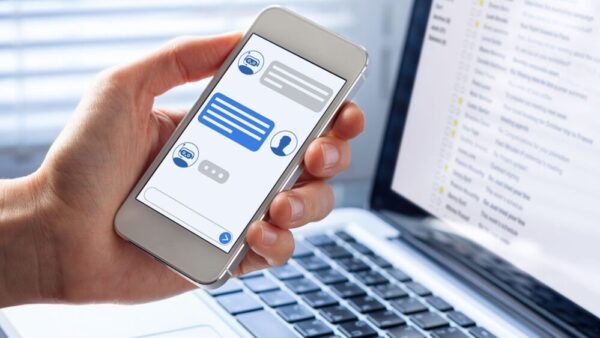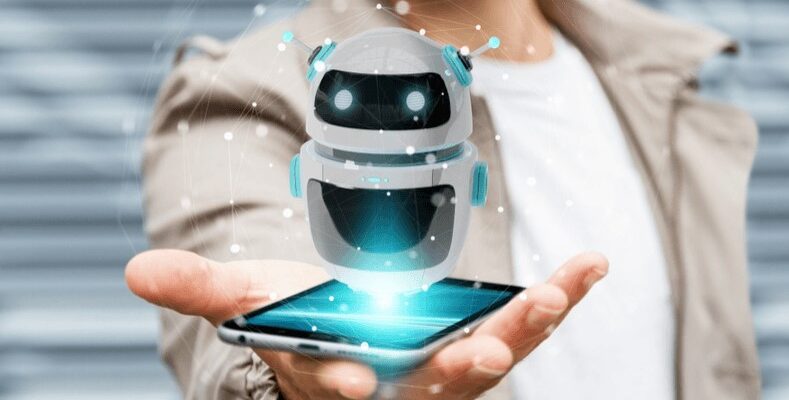Technology continuously upgrades the modern lifestyle with “smart” devices and machines that take the edge off routine labor. Like healthcare, education, industry, and other sectors, it also permeates commerce and touches the ever-evolving battleground of customer service.
Customer service is an integral unit of a business organization, which assists consumers throughout the buying journey, making sure to leave them as satisfied as ever to improve the credibility of the respective company. Visit this site to see top-of-the-line customer service in action.
Though customer service had humble beginnings, limited to phone support, it has now become completely dynamic, covering multiple grounds and avenues to assist customers any which way. Initially maneuvered by human representatives solely, the field of customer service has also inculcated “smart” technology. One of the iterations of this “smart” technology is a chatbot.
A chatbot is a computer program, which builds on the principles of Artificial Intelligence and Machine Learning, to simulate human speech patterns and engage in realistic conversations with human users. Chatbots have been used in therapy and other domains before, but their incorporation into customer service has yielded remarkable results. Let’s dive into the utility of chatbots in customer service below and see if they really are future-proof.
Omnichannel Deployment

We all know that the future customer service will be omnichannel, i.e. present on nearly all the digital platforms frequented by users online. Even today, we find companies extending their customer service beyond the confines of mere website support.
The nature of chatbots is such that they can be deployed on several customer service channels. For instance, consumers can have real-time chats with a company’s chatbot on the business website itself, its social media pages, chat messenger apps, email, and even SMS.
This makes the chatbot technology scalable, i.e. able to be extended application-wise. It also gives the impression that the company is future-oriented, inspiring tech-savvy customers to invest in it, as well.
Operational Efficiency
Customer service is a tough gig and can leave human agents overburdened with repetitive tasks. This is where chatbots come to the rescue, taking the pressure off the human representatives, and enabling them to handle cases of a more complex disposition.
For starters, chatbots are machines, and machines don’t get tired, which means that they can deal with voluminous queries from hundreds of customers in a relatively short period of time. This level of automation frees up resources for the company in question.
Moreover, a chatbot is an artificially intelligent software, which is less prone to making mistakes that a human agent might, giving results that are more accurate and functionally efficient. With the increase in the number of online buyers over the next few years, chatbots might actually be required by companies to help with data collection and management on a large scale.
Higher Responsiveness

Chatbots are always there for customers, even when human customer service representatives are not. This software can be set up on multiple digital channels to offer support around the clock. Such a high rate of responsiveness bodes well for the company, because today’s online users have incredibly short tempers and attention spans, and they wish to be gratified “in the moment” without having to wait, which customer service chatbots can accomplish effectively.
Suppose, it’s 2 in the night and a customer has a burning question about a product or service that cannot be delayed till the next morning. They can easily hop on a live chat with a chatbot during off-service hours to receive the answer instantly. This is how, by extending speedy support 24/7, chatbots secure their future in the customer service domain.
Personalized Interactions
Chatbot technology has traveled a long way since the early days of binary, robotic conversations. The software engineers have fine-tuned its natural language processing to a great extent, allowing the chatbots of this era to provide personalized interactions in the brand’s unique voice.
Yes, it is now possible for a business to give a distinct “personality” to its chatbot in order to color the customer experience in the company’s distinct shades. For instance, a Texan food chain can program its chatbot to adopt a Texan accent in its speech to engage in an authentic Southern conversation with regional customers and reel them right in.
What’s more, chatbots can also remember the chat they’ve had with each customer, pulling up chat history and overviewing the customer’s specific case to offer personalized and customized support instead of a one-size-fits-all service.
Customer Self-Service

The consumers of today are more self-reliant. They prefer to get things done in a DIY style and to solve their problems on their own. Businesses that acknowledge this self-sustaining tendency in their customers and cater to it while designing their customer service strategy manage to come out on the top.
Did you know that chatbots also empower customers to help themselves? Yes, a chatbot can read the context clues in a conversation, which outline a certain issue or query, and match them with its information repository. Then, it sends the most relevant troubleshooting guides, tutorial videos, and FAQs to the respective customer, so he or she can resolve the problem on their own, instead of having to wait for hours on end to receive aid from the phone or email support agents.
Since customers in the future may prefer self-service to other modes of customer care, chatbots will be needed to pull up relevant information fast and help customers support themselves.
The Verdict
As evident from the aforementioned points, chatbot technology will definitely find its place in the future of customer service, streamlining operations with accuracy and efficiency. But, is it “the” future of customer service? That’s up for debate.
Though chatbots may be perfect for handling simpler interactions and assisting customers in a personalized manner, they can’t replicate the spontaneity and agency that a human agent exerts while solving a complex problem… yet. Thus, we can expect to see a combination customer service in years to come, synthesizing human and machine-based support beautifully.




